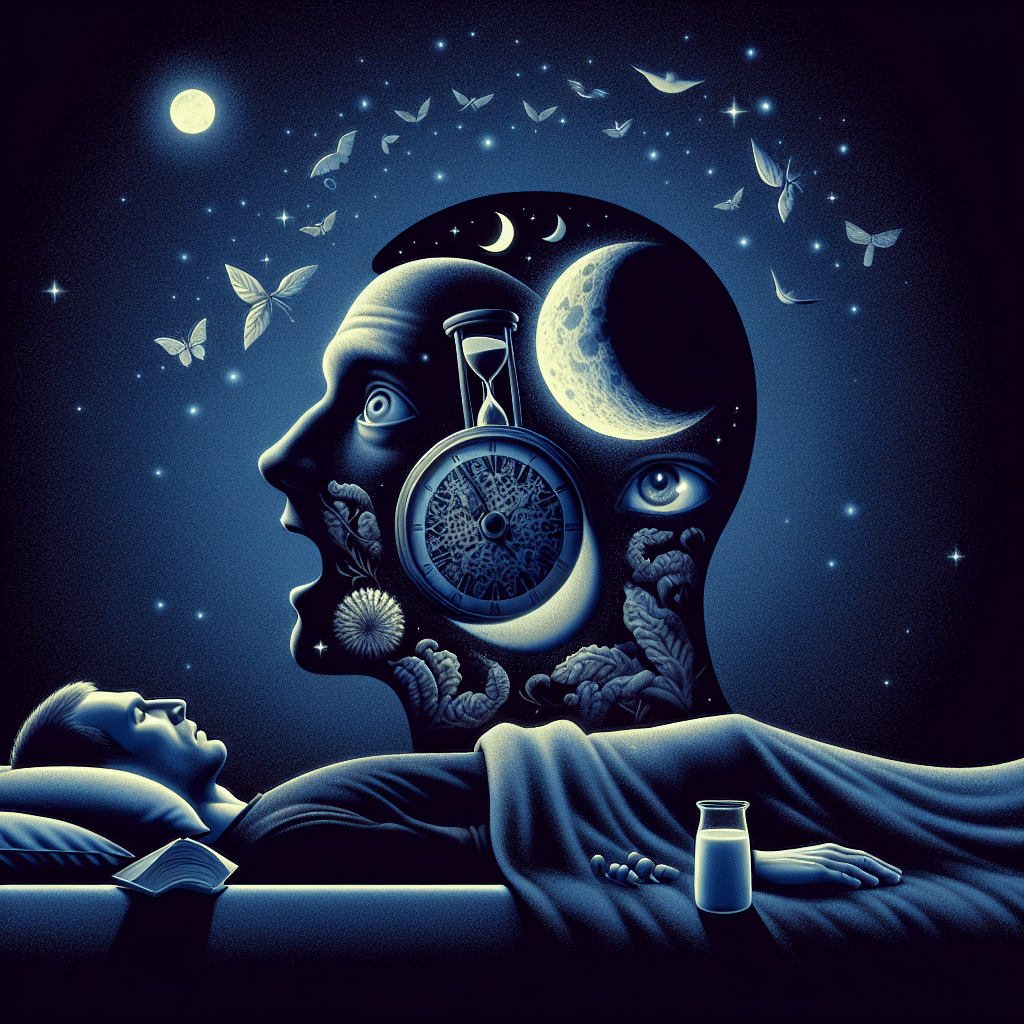Signs of Insomnia
Insomnia is a common sleep disorder that affects millions worldwide, disrupting nightly rest and overall well-being. Recognizing the signs of insomnia can empower individuals to seek timely treatment and regain control of their sleep patterns. Here are the primary signs to watch for:
-
Difficulty Falling Asleep: One of the hallmark symptoms of insomnia is having a challenging time falling asleep. Individuals may lie in bed for extended periods without drifting off, often feeling frustration or anxiety about their inability to sleep.
-
Frequent Awakenings: Waking up multiple times during the night can also indicate insomnia. Those affected might find themselves unable to return to sleep, leading to fragmented sleep and emotional distress.
-
Early Morning Awakening: Some may wake up significantly earlier than intended and struggle to fall back asleep. This sign can lead to feelings of tiredness and insufficient rest throughout the day.
-
Daytime Sleepiness: Chronic fatigue during the day, especially if accompanied by difficulty concentrating or irritability, is a prevalent sign of insomnia. This excessive sleepiness can severely impact daily functioning and productivity.
-
Mood Changes: Insomnia can manifest as mood swings, anxiety, or even depression. The lack of restorative sleep can affect emotional regulation, leading individuals to feel more overwhelmed by stressors.
-
Cognitive Impairment: Those with insomnia may experience memory lapses, poor decision-making abilities, or reduced attention span. Cognitive deficits can hinder both personal and professional capabilities.
-
Restlessness: Many people with insomnia report feelings of restlessness, making it hard to relax, whether in bed or during the day. This can lead to pacing or fidgeting as the body seeks resolution.
-
Increased Stress: The connection between insomnia and stress is reciprocal. Insomnia can elevate stress levels, and heightened stress can, in turn, exacerbate sleep difficulties. Recognizing this cyclical pattern is essential for effective treatment.
-
Unhealthy Coping Mechanisms: Individuals suffering from insomnia often resort to unhealthy habits, such as increased caffeine intake, reliance on nicotine, or alcohol use, in an attempt to cope with sleep deprivation.
-
Physical Symptoms: Insomnia can produce various physical symptoms, including headaches, stomach problems, or muscle tension. These manifestations can further complicate the ability to relax and fall asleep.
How to Treat Insomnia
Addressing insomnia requires a multi-faceted approach that includes lifestyle changes, behavioral strategies, and, when necessary, medical intervention. Here are effective treatment options:
-
Sleep Hygiene Practices: Establishing healthy sleep habits is foundational in combating insomnia. Key practices include setting a consistent sleep schedule, creating a relaxing bedtime routine, and optimizing the sleep environment—cool, dark, and quiet.
-
Cognitive-Behavioral Therapy for Insomnia (CBT-I): CBT-I is a structured program that helps patients recognize and replace thoughts and behaviors that contribute to insomnia. It often includes sleep restriction, stimulus control, cognitive restructuring, and relaxation techniques.
-
Relaxation Techniques: Implementing relaxation techniques, such as mindfulness meditation, deep breathing exercises, or progressive muscle relaxation, can significantly reduce anxiety and promote better sleep. Finding what resonates personally can enhance these practices’ effectiveness.
-
Limiting Stimulants: Reducing or eliminating caffeine, nicotine, and alcohol, particularly in the hours leading up to bedtime, is vital for improving sleep quality. Each of these substances can disrupt the body’s natural sleep-wake cycles.
-
Physical Activity: Regular exercise has profound effects on sleep quality. Engaging in physical activities—whether aerobic workouts, strength training, or yoga—can help mitigate symptoms of insomnia. However, timing is crucial; it’s best to avoid vigorous exercise close to bedtime.
-
Dietary Adjustments: Mind what you eat and drink. A balanced diet impacts well-being: foods high in magnesium and omega-3 fatty acids promote restful sleep. Furthermore, a light snack before bed, such as bananas or walnuts, may enhance the likelihood of falling asleep.
-
Technology Management: Limiting screen time before bed is essential due to the blue light emitted by devices, which can interfere with melatonin production. Creating a “tech curfew” at least an hour before bedtime can significantly aid the sleep process.
-
Sleep Medicine: In some cases, healthcare professionals may recommend medication to manage insomnia. Options may include prescription medications or over-the-counter sleep aids. However, these should only be used under the guidance of a healthcare provider due to potential side effects and dependency risks.
-
Behavioral Modifications: Avoiding activities in bed that are not sleep-related—like working or watching TV—can help reinforce the association between bed and sleep. Ensuring that the bed is a sanctuary for rest can assist in regulating sleep patterns.
-
Seeking Professional Help: If insomnia persists despite attempting self-help strategies, it’s essential to consult a sleep specialist or healthcare provider. Underlying health conditions, such as anxiety, depression, or sleep apnea, may require comprehensive treatment plans tailored to individual needs.
By recognizing the signs of insomnia and actively exploring treatment options, individuals can start a journey towards restoring their sleep, enhancing their quality of life, and reclaiming their well-being through restful and rejuvenating sleep.
